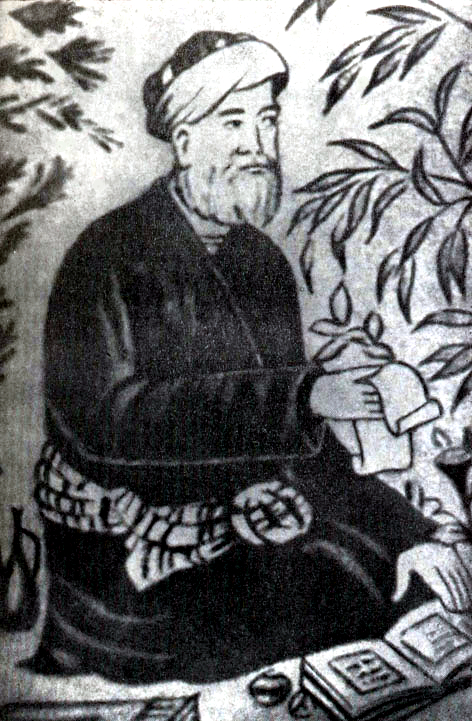“It is best to avoid low company, whether they come in peace or in war.”
An argosy of fables, p. 245
about himself, Extracted from Baharīstān-e- Jami
Djami , de son nom complet Mawlānā Abd al-Raḥmān ibn 'Aḥmad Nūr al-Dīn Ǧāmī , né le 18 août 1414 à Khargerd ou Djam, dans la banlieue de Hérat et mort le 19 novembre 1492 à Hérat, est un des poètes persans les plus réputés du XVe siècle, et un des derniers poètes soufis de Perse. Il a travaillé pour le grand émir timouride Husayn Bayqara à Hérat.
Il a été appelé à la cour du sultan Aboû-Sâïd. Certains de es poèmes mystiques inspirent des compositions du célèbre miniaturiste Behzad .
Wikipedia

“It is best to avoid low company, whether they come in peace or in war.”
An argosy of fables, p. 245
about himself, Extracted from Baharīstān-e- Jami
“Good intentions are useless in the absence of common-sense.”
An argosy of fables, p. 240
about himself, Extracted from Baharīstān-e- Jami
“Happy is the man who knows the true from the false, and refuses to accept less.”
An argosy of fables, p. 243
about himself, Extracted from Baharīstān-e- Jami
An argosy of fables, p. 242
about himself, Extracted from Baharīstān-e- Jami
“The wise man refuses to be led beyond his own depth.”
An argosy of fables, p. 242
about himself, Extracted from Baharīstān-e- Jami
Lawāih, p. 20
Lawāih
“I was trapped in love
And this trap is enough for me.”
Haft Awrang, p. 101
Poetry, Poetry from Haft Awrang
“How a pleasant word of an old lover that said
When there is lovem there is no comfort.”
Joseph and Zuleika, p. 254
Poetry, Poetry from Joseph and Zuleika
Joseph and Zuleika, p. 113
Poetry, Poetry from Joseph and Zuleika
Joseph and Zuleika, p. 78
Poetry, Poetry from Joseph and Zuleika
Alluding to Rabia of Basra, Nafahat al-Uns, as quoted in A Literary History of Persia https://www.google.com/books/edition/A_Literary_History_of_Persia/q_n1DwAAQBAJ?hl=en&gbpv=1&pg=PA299 by E. G. Browne, p. 299.